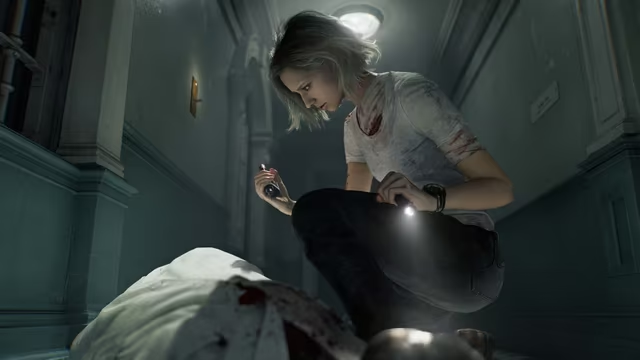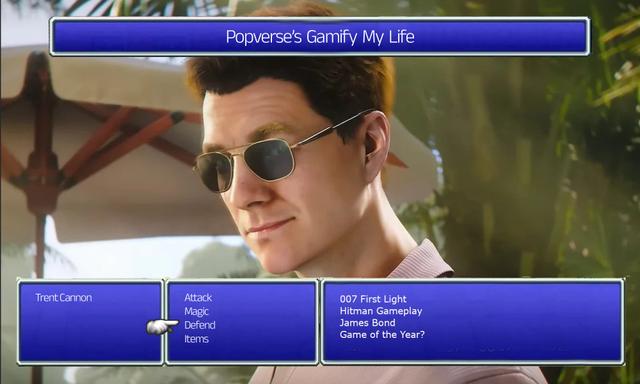If you click on a link and make a purchase we may receive a small commission. Read our editorial policy.
The double-edged sword of creator-owned comics with comics publishers
A true story of a comic publisher gone bad

What’s the first media adaptation of a creator-owned comic book that you remember watching?

For me, it was Road To Perdition, the 2002 film starring Tom Hanks, Paul Newman, a future James Bond named Daniel Craig, and a future Superman named Tyler Hoechlin. Road To Perdition was directed by Sam Mendes, written by David Self, and based on a graphic novel by crime novelist Max Allan Collins and artist Richard Piers Rayner.
Published by DC Comics in 1998 through their groundbreaking and now-defunct imprint Piranha Press, Road To Perdition was a father and son story that made the jump to that highly-desired big screen world in four years. It was a time before the term ‘graphic novel’ was beloved by most librarians and before graphic novels became one of the major Hollywood food groups.
I remember thinking at the time, and many times afterward when I would watch the DVD or listen to the score by Thomas Newman, 'I wonder how many people who saw this movie had any idea it came from a comic book?'
We’re in a different world now. Everyone knows the name ‘Thanos’. The character of Scott Pilgrim is a warm, nostalgic touchpoint for an entire generation. Librarians and young readers want graphic novels faster than publishers can make them, and if you type ‘graphic novels’ into the search field at The Hollywood Reporter’s website, you get more than 25,000 results.
This is the world 20th century comic book geeks wanted, validating their unquestionable understanding that comic books were the best and most fertile ground for mythic stories to be told on the most visible, most grand storytelling stages in the world. Not just for the subculture, but for everyone. Comic book creators see the possibilities, made evident by the adaptations of various comic books by their friends, mentors, and idols in the business.
Some of you want that for your original idea, and why shouldn’t you?
Yes, those of you who love comic books (and we know which of you are fakers and pimps) know your comic book is the quintessential version of the idea. Still, to see that story reach a larger audience through another medium and experience everything that comes with it would be nothing less than extraordinary.
You and your ideas have value, and that’s why you. Are. PREY.
For the predators. The victimizers.
The Narcissists.
We’re not talking about the majority of geniuses, groundbreakers, and business visionaries of the comic book industry.
The dark side of comics publishing
This is a very specific sub-breed. A parasite. A pretender. A beast wearing human flesh who sees comic books only and exclusively as a prostitute in a red dress and stiletto heels, to be sent out into the world to attract people who will feed their bank accounts like Thanksgiving Day. Sees your brain and your ideas as a source of nourishment for their insatiable appetite.
I’ve worked for a few narcissists in comics.
An inside story of a comic publisher gone wrong

Today, I’ll tell you a story about ‘Stonewitch’, and a company called Radioactive.
Stonewitch was a charismatic fellow. I could feel his smile through the telephone, without even seeing him. His energy was like that of a fireball, an elemental force that generated heat wherever it went and would not be denied.
He had a vision for Radioactive. A vision the size of a planet. For the vision to be realized and the future of Radioactive to be brilliant and blinding, something that would take the world of entertainment by storm, it needed the fuel of IP.
Intellectual Properties.
IP. IP. IP. IP. IP. IP. IP, and IP.
Find the creators with the craziest ideas that other publishers didn’t have the creative sensibilities to embrace, give them the opportunity to work with Radioactive without corporate shackles, and both parties will be winners!
Radioactive was, by no means, the first publisher to concoct such a plan. Sure, the comic book industry’s rear-view mirror reveals the bodies of other publishers with similar schemes that failed, but they didn’t have the Radioactive brand.
It was a crazy goal, but I’d heard crazier. I told Stonewitch I’d come on board for this ambitious future, but there were two conditions. One of which was that any creator I brought on board had to be paid on time. No fly-by-night BS. Stonewitch promised that he and Radioactive would keep that promise.
That would be the first in a long road of lies.
Radioactive received a lot of press with the first stages of Stonewitch’s plan, in part through the reveal of the publisher’s new business team. I brought living legends and newer voices to the publisher, and when the creators brought their original ideas to the publisher, they were greeted with contracts containing eye-opening rates, and blood-curdling percentage splits for profit sharing and co-ownership of the ideas.
Stonewitch’s point of view was that since Radioactive was providing page rates for bringing the original ideas into tangible reality, the company should own at least 55% of the IP.
At the very least.
But they had the brand. They were talking with studios on a regular basis! Studios looking for ideas that weren’t superheroes!
Some creators brought in their lawyers to renegotiate. Others walked out the front door. But ultimately, creators from all walks of life signed up for the ride of a lifetime. Creators told by the publisher that “There’s no money in publishing.”
As if James Tynion IV did not exist to provide evidence to the contrary, but I digress.
The Radioactive team under Stonewitch worked with creators to make stories, while Stonewitch schmoosed with the studios. When the talks became interesting, Stonewitch would tell the creators about it. Name names. To get them excited. Jazzed. Supercharged.
Until a check was late, and a creator reached out to Stonewitch. Their buddy. Their friend. All-around nice guy who would never, ever screw around with them.
Stonewitch profusely apologized, sometimes adding a few extra bucks to the payment as a thank you for the creator’s patience and understanding, after which he would dip into the mysterious and hidden piggy bank to pull out the funds and make the payment. Problem solved! Creators could once again pay their bills and wipe the sweat of agita off their brows.
The next scripts were turned in, better than the last. New batches of pages would arrive, upping the ante artistically and showing the artists’ growth as they hit a groove with the stories.
Until the next late payment, and the next email dance to keep the creator from looking at the elephant in the corner, while Stonewitch dipped into the company’s Byzantine financial reservoir of cash to pacify people. A reservoir within a system designed to be opaque and impenetrable, so only his key could open the door to it.
And so Radioactive began its race against time. Stonewitch leveraging the brand to get deals which provided injections of money, providing weekly updates on big talks with big people at big business entities. Leveraging the brand to create new relationships with famous people, which led to high-profile press. High-profile press which was utilized to get medium-level deals, continuing the cycle like an ouroboros with the determination of a shark.
Behind the scenes, Stonewitch dealt with the kind of anxiety that comes from moving at 100 miles per hour on a quarter tank of gas. Anxiety which led to anger. Leading to emotional escalation resulting in putting pressure on the team.
Radioactive needed more IP! For more conversations with studios! To create The Radioactive library of thousands of characters and dozens of IP. No, not a library…
…A UNIVERSE!
Stonewitch chose his allies and enemies. Among the creators. Among staff. Keeping his beloved creators in the Hollywood loop to boost the company’s credibility with studios, while ignoring the rest. Positioning team members in order to create a fear-based business through extension, through his lieutenants, because we were at war, dammit.
At war with a narcissist, against whom there was no rhyme or reason, no yesterday or past battles hand-in-hand, no loyalties, no ethics.
No limits.
Until the illusions and lies could no longer withstand the onslaught of all the wronged parties, all the destroyed relationships, all the monies owed to creators and creditors, and all the reserves of faith the team could muster.
When we realized we were up to our knees in excrement and could no longer be a barrier between our pool of creators. The company fell like a house of cards, Stonewitch became exiled from the creative community he disingenuously embraced and befriended, and a lot of original ideas went into the limbo of who-knows-what-happens-now.
All for IP. IP. IP. IP. IP. IP. IP, and IP.
Leaving the staff and creators from around the world at the side of the road like so much rubbish, during a time in the comic book industry in which chickens were coming home to roost for publishers operating their business on fumes.
The creator-owned deal(s) in comics
While Radioactive did not offer creators a good profit split on original ideas, what it unfortunately did was exploit a business model that has become the Standard Operating Procedure of the Direct Market comic book industry: the creator-owned deal which is really a Shared Ownership Deal, which for some publishers is the Creator-Generated-But-Company-Owned Deal.
One popular profit-sharing model for creator-generated ideas is the 50/50 split, right down the middle. At least two of the top 10 publishers in the Direct Market of publishers, retailers, and distributors utilize this deal. This is where the creator has to look at all of the variables, including the publisher’s track record of getting comic book adaptations to screen, their capacity to sell a certain number of comic books for increased chances of royalties and visibility in the marketplace, and their reputation among other creators. Who has the power to shop the idea to studios? Who has decision-making power regarding what deals are accepted? For the quid pro quo of all that, what are the page rates like? Good? Reasonable? Cat food? Dog manure?
Another model that various publishers use is the creator-generated idea for which the creator is paid Very Well but the company owns the idea 100%, with the creator receiving monies for profit-sharing and a producing role on media adaptations of the idea. This is another kind of trade-off. What do you get to sell your baby? An amazing page rate? A high-quality published story? Can you leverage the latter to get more work from clients that pay well? Can you lose one child today, so that you can keep your future children in future deals?
Are you rolling the dice on a publisher getting you a media deal? If they do, yes, there’s option money, but for most people it’s not a lot. Will the adaptation get made before the option runs out? If it doesn’t, will the studio renew the option? If they don’t, the publisher can shop it again, but the earth has now become just a little bit salted because one studio let their option run out and did nothing with it. For every creator-generated original comic book-based show that Netflix gets to screen, there’s another one the studio puts in an early grave, and in some cases while the show is in production. The road to seeing a media adaptation of your creator-owned work in Hollywood has become less of a pipeline and more of a funnel, while the comic book marketplace is housing a heavy load of stories with full or shared creator ownership.
In the September issue of Previews, the monthly catalog created and published by Diamond Distributors for comic book shop owners, over 400 pages of comic book listings revealed at least 10 publishers specializing in monthly books with shared-ownership deals. This doesn’t count Image Comics. The third largest publisher of monthly single-issue comics in the Direct Market and distributed by Lunar Distribution, Image Comics is publishing at least 46 creator-owned comic books in the month of November. In addition to that, the crowdfunding platform Kickstarter continues to be a growing vehicle for creator-owned comic books, touting a 78% success rate for comic book projects completely funded in 2022. Comic books by veterans as well as newer creators.
The real goals of creative and creator-owned comics

If the chances for success in the comic book publishing landscape are increasing while the chances for success in Tinseltown are shrinking, what is the true north star of our creative visions?
A vision for the comic book as the end all and be all, the best possible medium for the stories we want to tell, provides an increased opportunity for imagination and higher degree of personal invulnerability. We become unlimited by the story’s capacity for cinematic translation. Unencumbered by the need to visually emulate cinematic aesthetic. Empowered to do things in comics that cannot be done as well in any other medium.
We become invulnerable to the narcissists, the Stonewitchs of the world who want to put you on your knees so they can use your back as a stepping stone for their ascension.
Stories made to be the best versions of themselves will always be rife for translation into other mediums, and there’s nothing in the world of art and narrative like comic books which are made to be the best version of themselves.

The best comic books, and no faker, schemer, or charlatan can make them better than you can.
Tell me… what’s the last amazing creator-owned comic book that you remember reading?
Over the next few months, Joseph Illidge will be writing a regular series of essays about comics- the medium, the message, the industry, and the community - from his vantage point as a comics writer, comics editor, Comic Book Legal Defense Fund board member, and owner of a movie production company.
This is Joe Illidge's Adventures in the Champagne Room.
Follow Popverse for upcoming event coverage and news
Find out how we conduct our review by reading our review policy
Let Popverse be your tour guide through the wilderness of pop culture
Sign in and let us help you find your new favorite thing.
















Comments
Want to join the discussion? Please activate your account first.
Visit Reedpop ID if you need to resend the confirmation email.